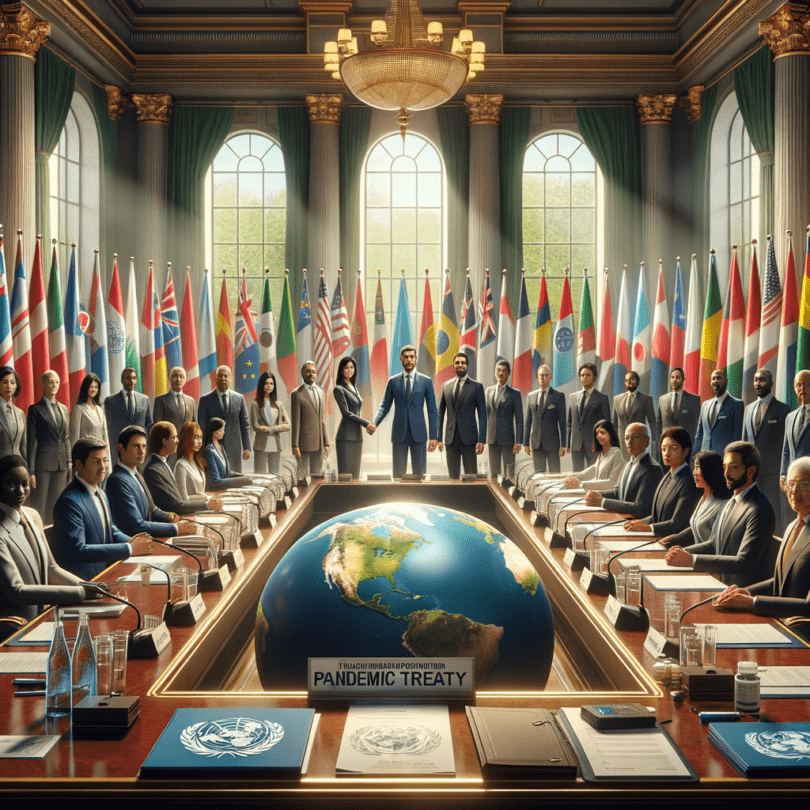States reached a significant agreement on June 1, during the tense final moments of the annual World Health Assembly gathering in Geneva, to implement a comprehensive set of amendments to the World Health Organization’s 2005 International Health Regulations. For over a hundred years, countries have aimed to establish international guidelines to tackle the threats of communicable diseases while safeguarding their national priorities. These regulations represent the only current global legal framework dedicated solely to preventing and addressing cross-border infectious disease outbreaks.
The last major update to these regulations occurred after the international community narrowly overcame the 2003 SARS outbreak. The existing rules couldn’t adequately address new infectious agents. Recognizing their collective vulnerability to emerging diseases, countries united to revise the regulations. While SARS revealed some gaps, the COVID-19 pandemic has highlighted more profound and systemic shortcomings in this global health legal system. Unlike SARS, COVID-19 has affected almost every region globally, causing extended human, social, economic, and political impacts. The pandemic challenged the world’s ability to respond to pandemics with fairness, unity, and trust. To an extent, the upcoming revisions aim to address these issues. Once these modifications are implemented, the global community may be better positioned than ever before to collectively prevent the next pandemic. The revised regulations initially aim to improve transparency and the prompt sharing of information on crucial public health incidents.
They introduce a new “pandemic emergency” alert to help countries prepare for an immediate threat before it becomes uncontrollable. Importantly, these regulations also require countries to cooperate so that medications, diagnostics, and vaccines are more likely to reach the individuals who most need them, regardless of their location. These amendments are commendable, but their most significant effect may be symbolic. For the first time, more than 190 countries have agreed to bridge north-south disparities on critical matters, expanding beyond a limited “technical” view of the regulations. The revised rules emphasize that implementing the regulations should be based on the principles of equity and solidarity, alongside fundamental human rights.
As a former member of the WHO expert committee that initially reviewed the proposed amendments, I am especially encouraged to see this aspect of the committee’s recommendations being adopted by countries during negotiations. Affirming that equity and solidarity are essential to the application of the regulations won’t erase long-standing global health inequities. Nor can it cover up severe failures in solidarity, such as the missed opportunity to temporarily waive intellectual property barriers that prevented crucial vaccine distribution to the areas in greatest need.
Nevertheless, this approach will ensure that all future actions in line with the regulations adhere to these principles and allow civil society to hold governments accountable. We must avoid repeating the gross injustices of vaccine hoarding and price inflation that extended the COVID-19 pandemic and disproportionately affected the Global South. Undoubtedly, the challenging task of putting the new regulations into practice is ahead, as implementation is a common challenge in international law. There is no certainty that the commitments countries make today will translate into action tomorrow.
Additionally, governments have up to a year to decide whether they will accept the new rules. For now, in a world filled with geopolitical tensions, misinformation, and populism, the regulations represent a rare victory for multilateralism and global health diplomacy. Everyone involved in reaching this consensus should be congratulated and encouraged to use the celebratory atmosphere to propel the crucial work of developing a new legal framework for pandemics under the WHO.
This pandemic treaty includes aspects like technology transfer and licensing for pandemic-related products, offering countries a chance to move beyond rhetoric and implement equity and solidarity through tangible actions and evidence-based laws. This is where Canada plays a role. Wealthy nations like Canada often clash with developing countries on achieving equity in pandemic preparedness and response. However, success in amending the regulations should motivate countries to strive harder to reach agreement on the pandemic treaty.
As an influential player in global health diplomacy, Canada has a vital role in nurturing this consensus. Despite its past negotiating positions, Canada should approach the regulations as a reset opportunity and a chance to rethink how it can positively contribute to the final phase of negotiations.

